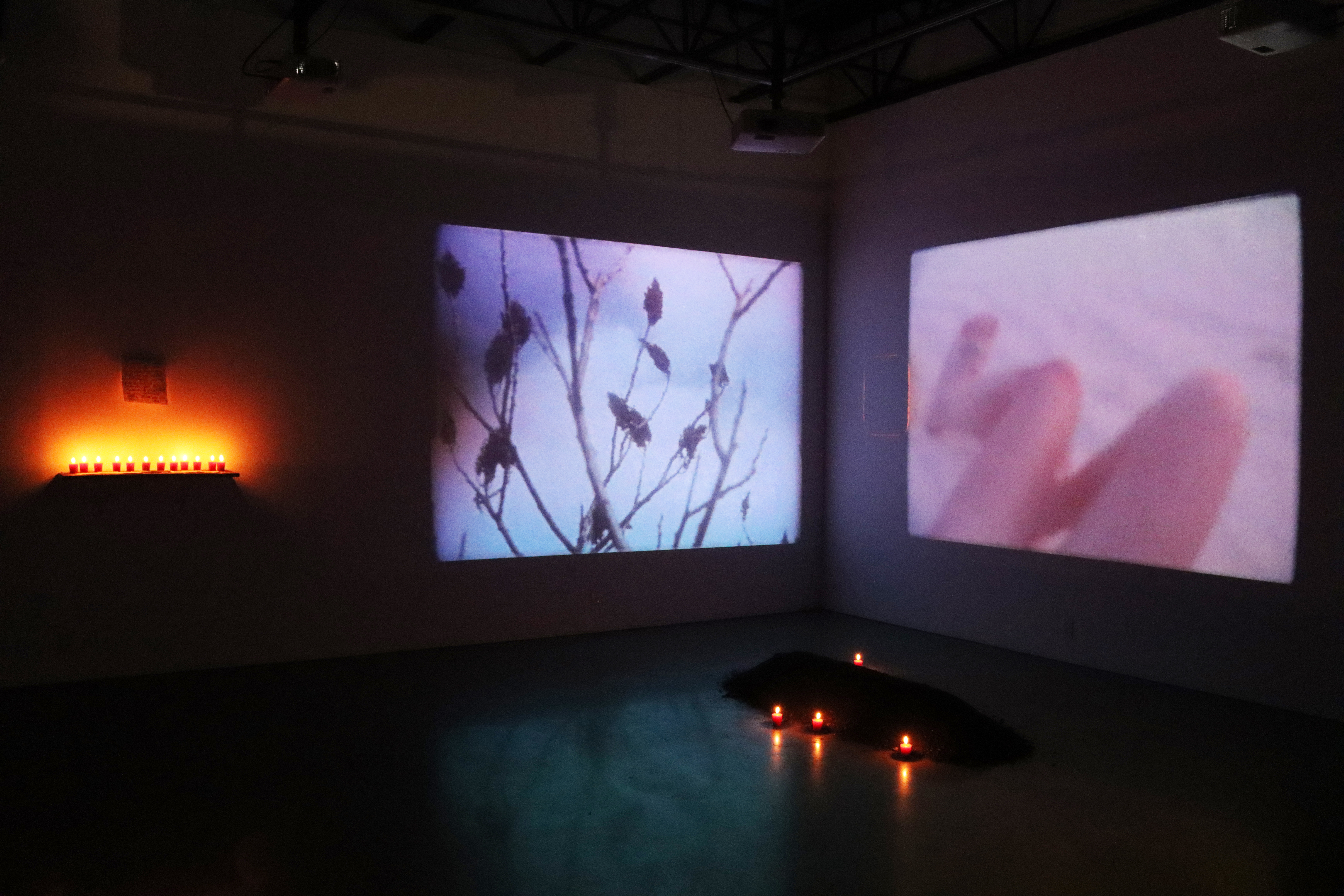
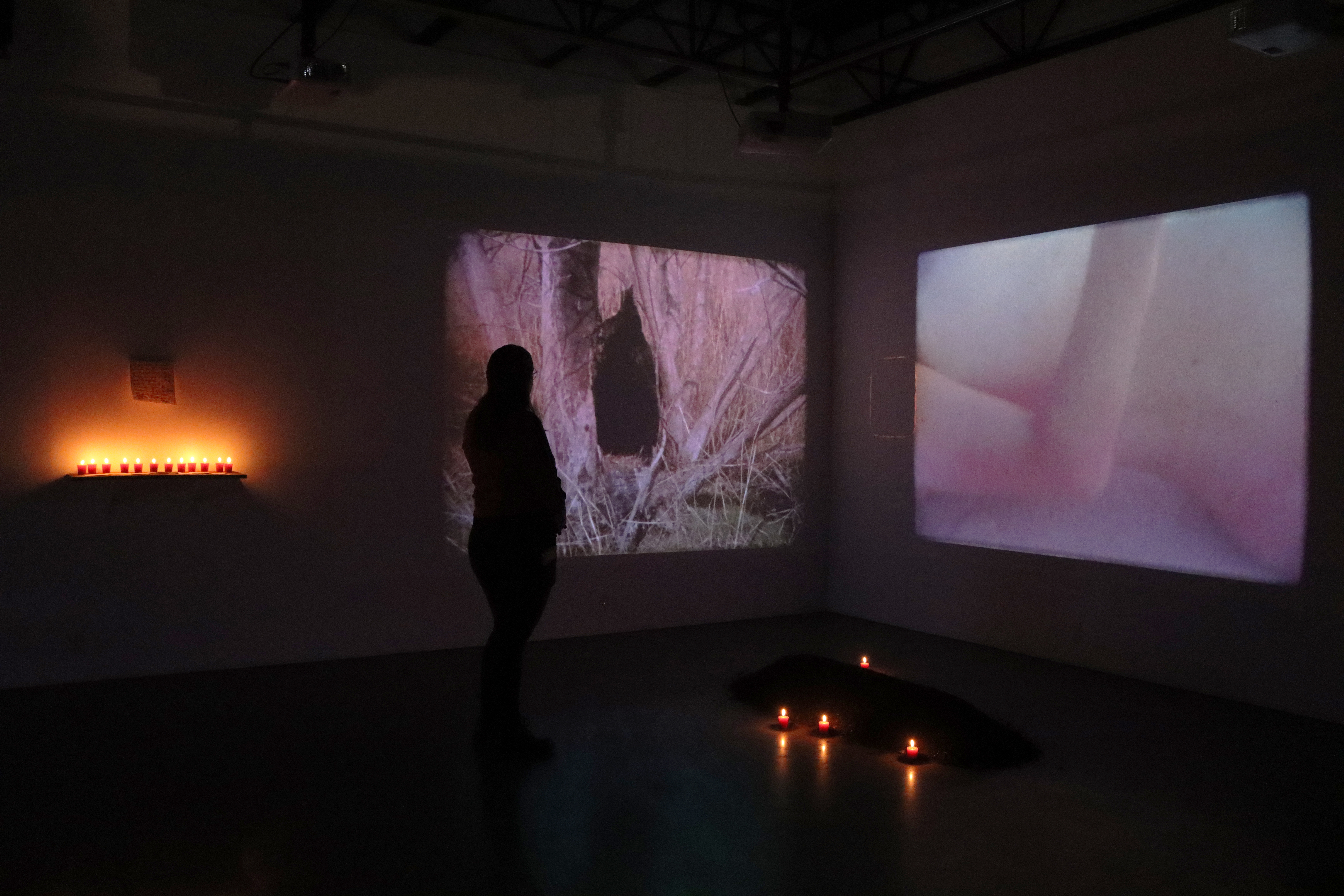
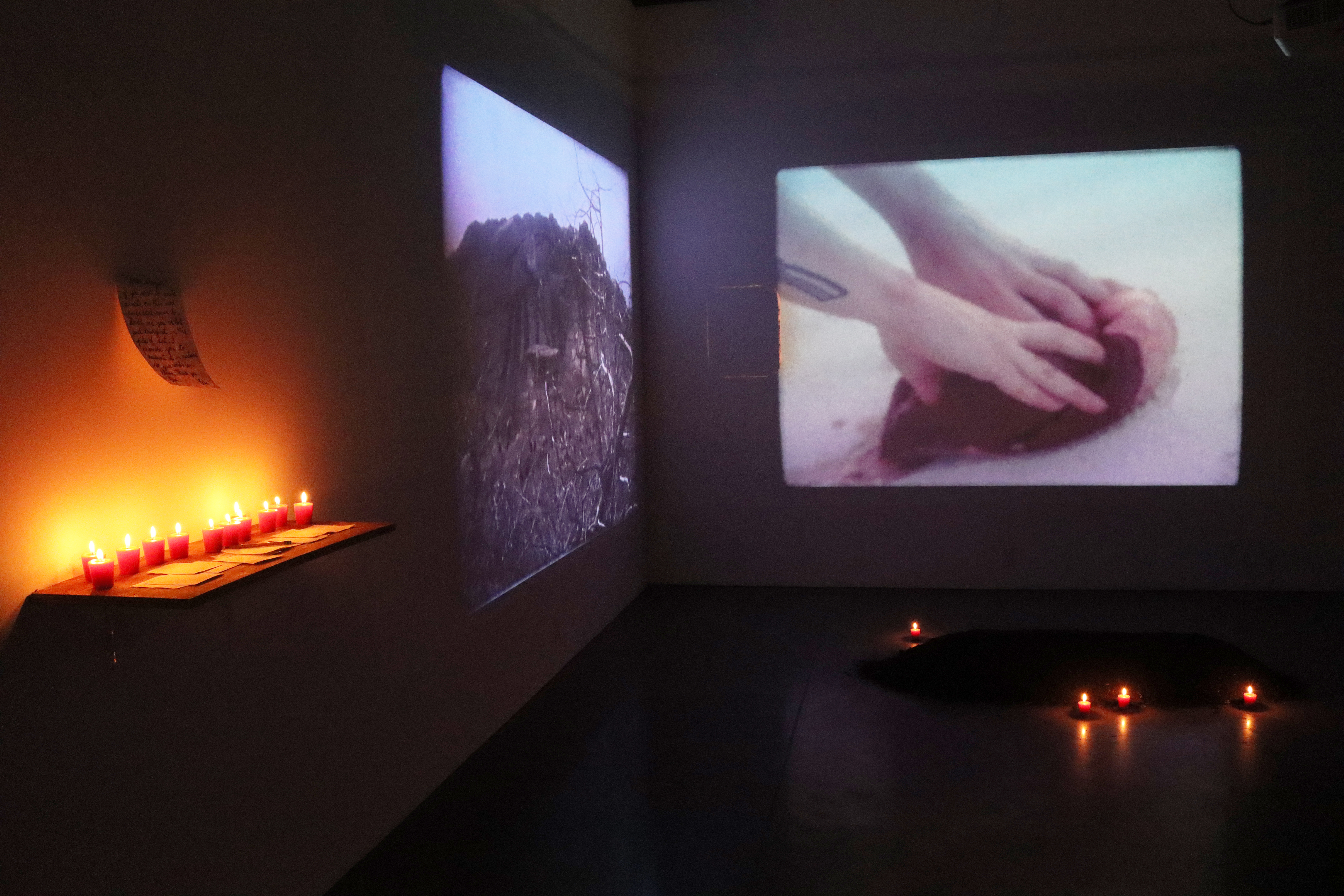
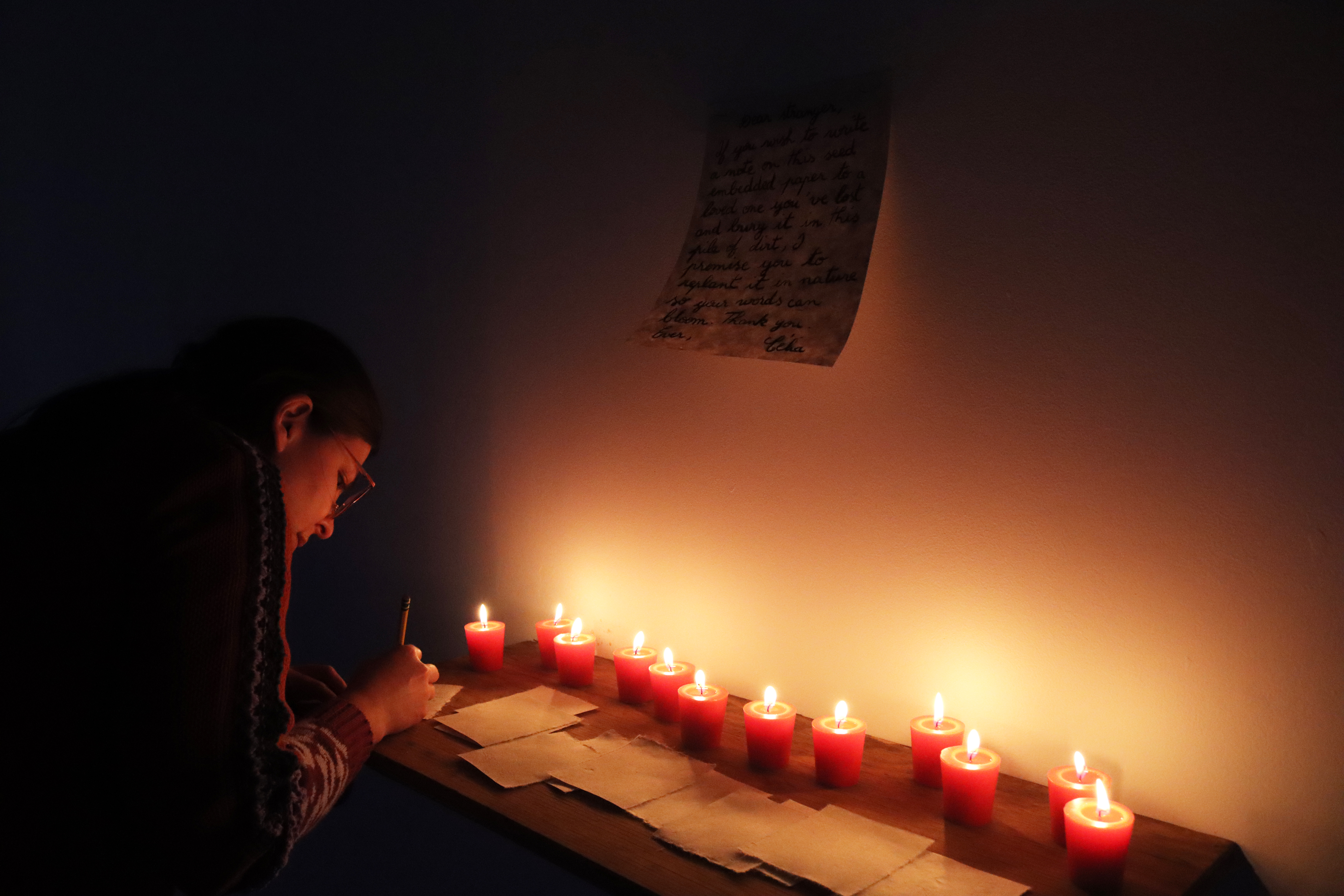
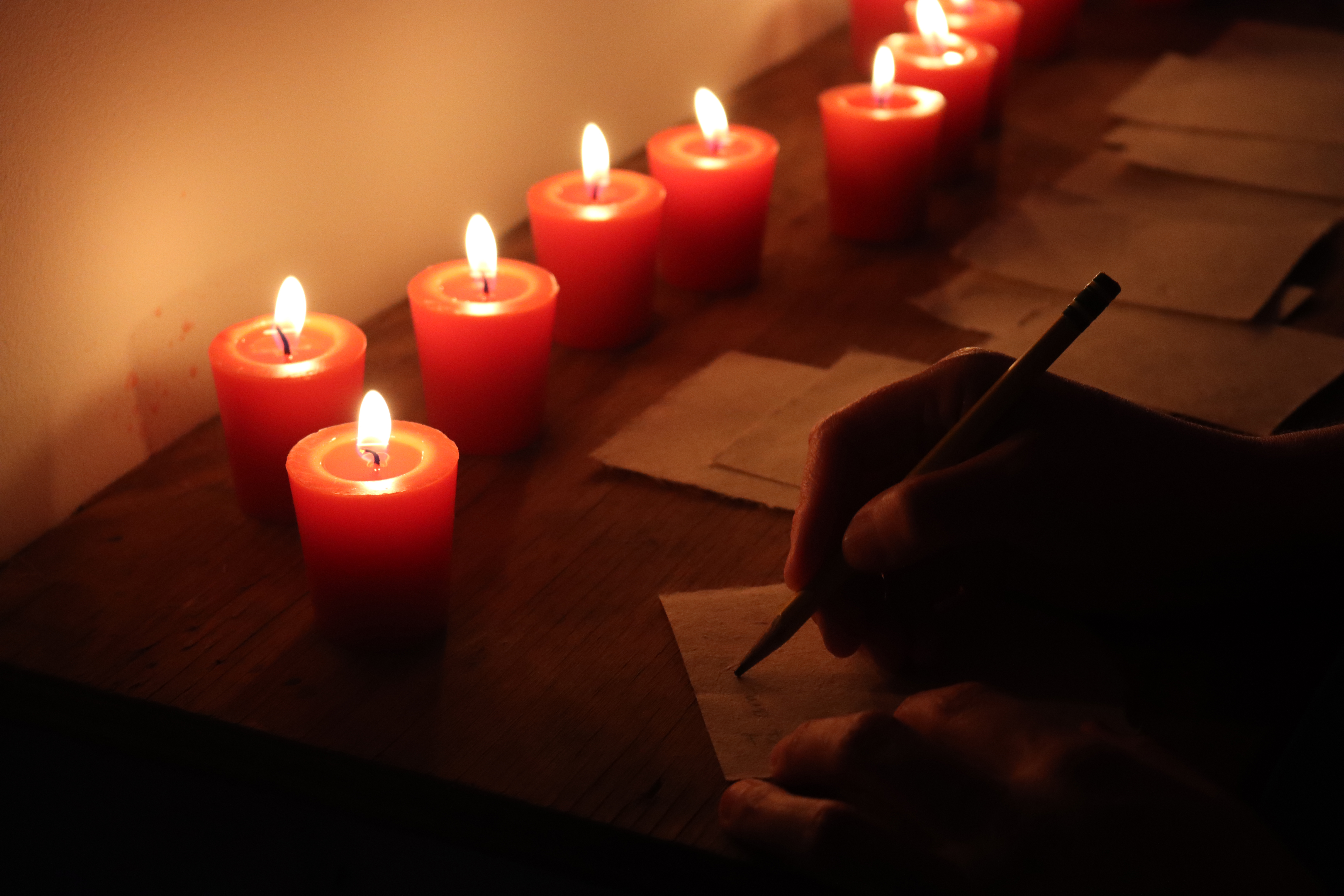
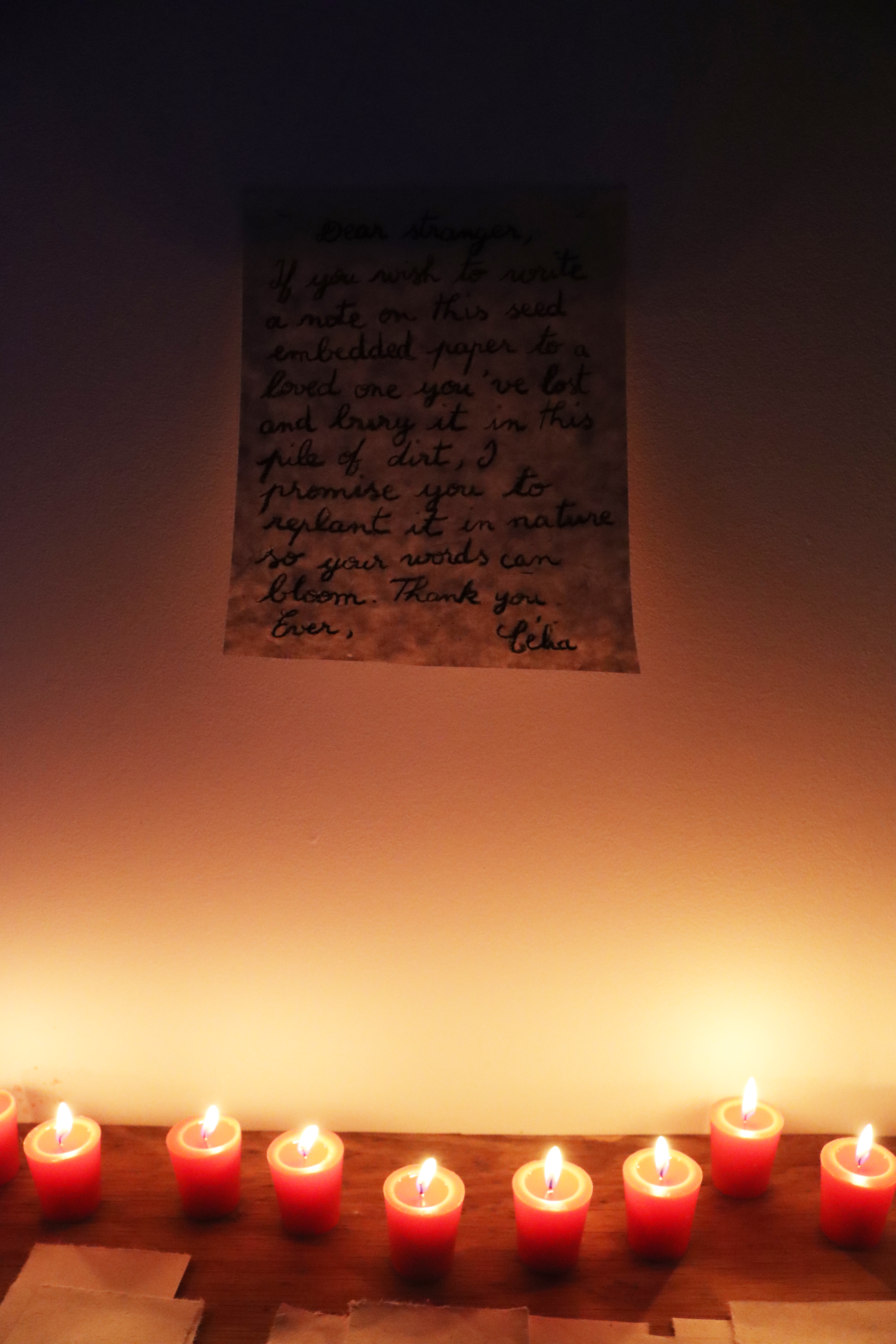
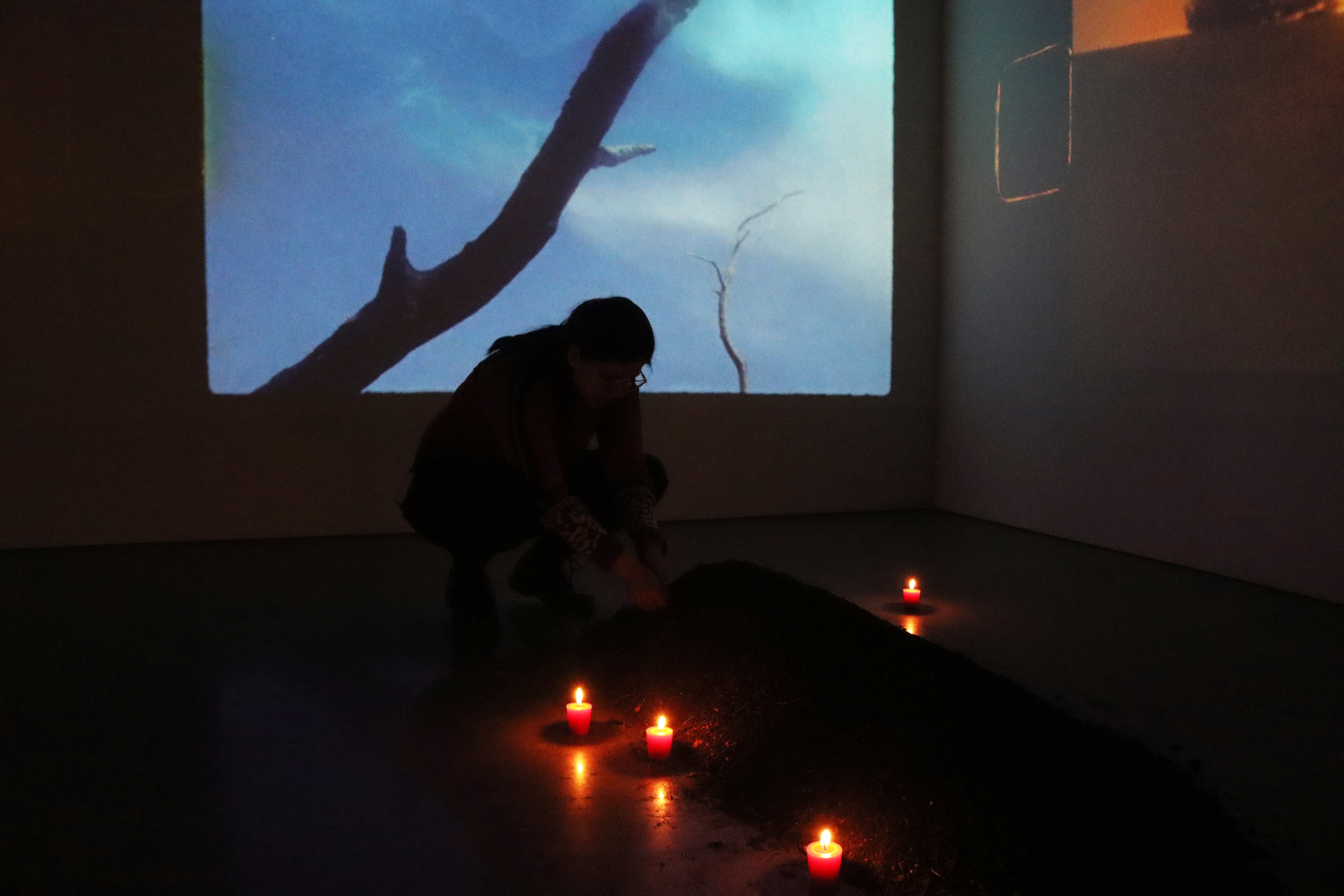
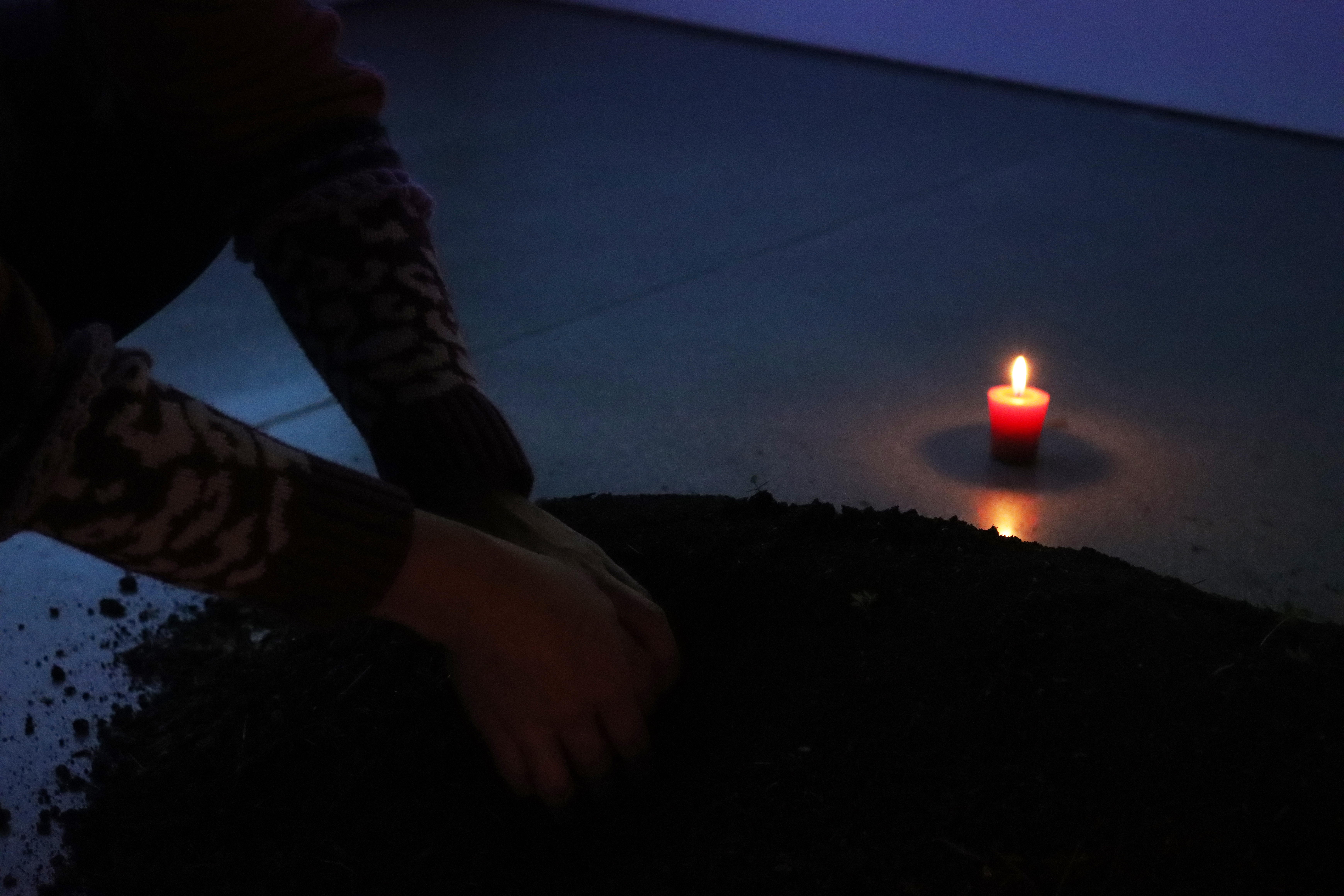
The Crying Mountain (2024-ongoing)
Multi-channel film installation
Variable duration (loop), Super 8 4/3 color, earth, candles, and seed paper.

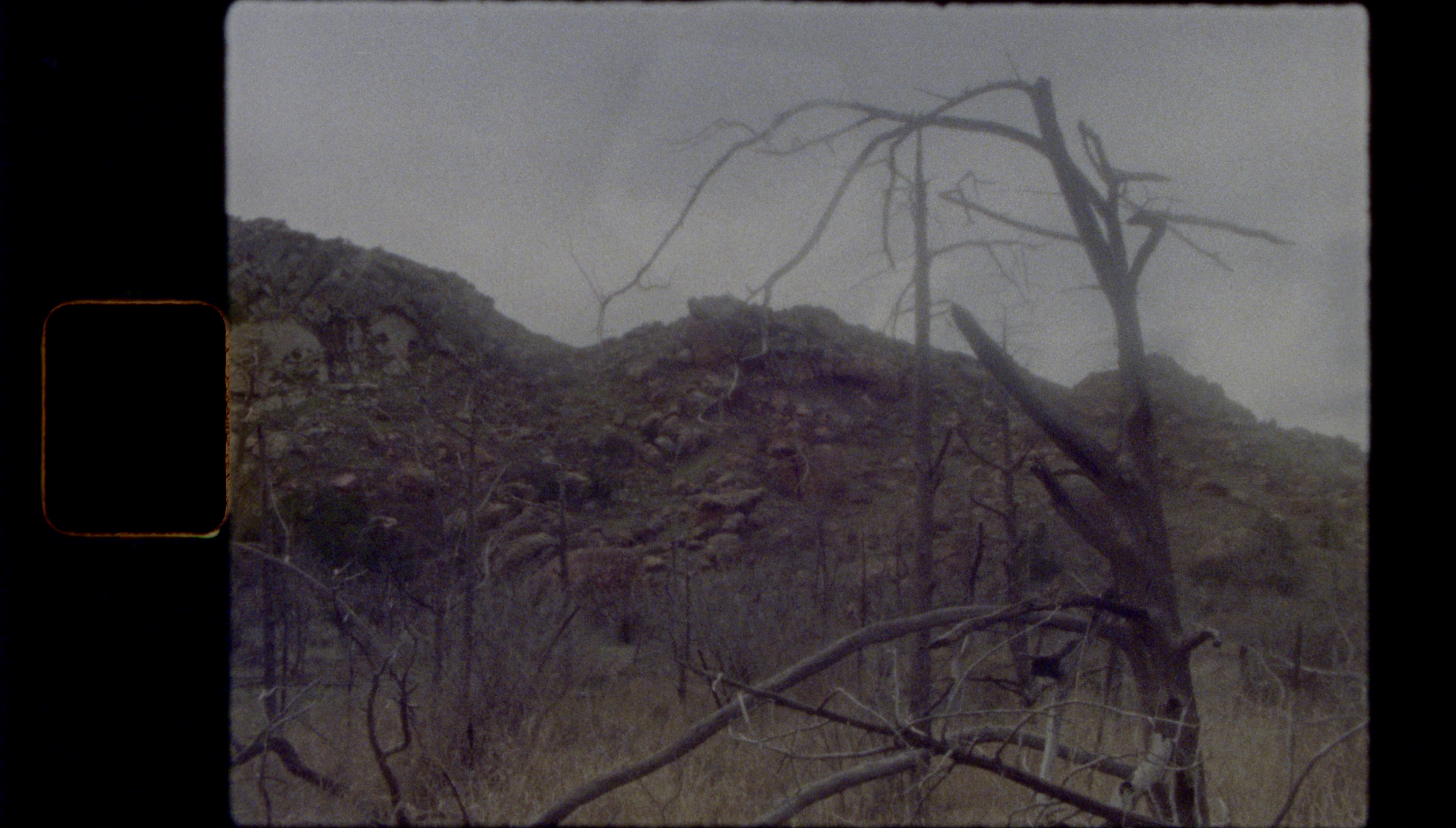

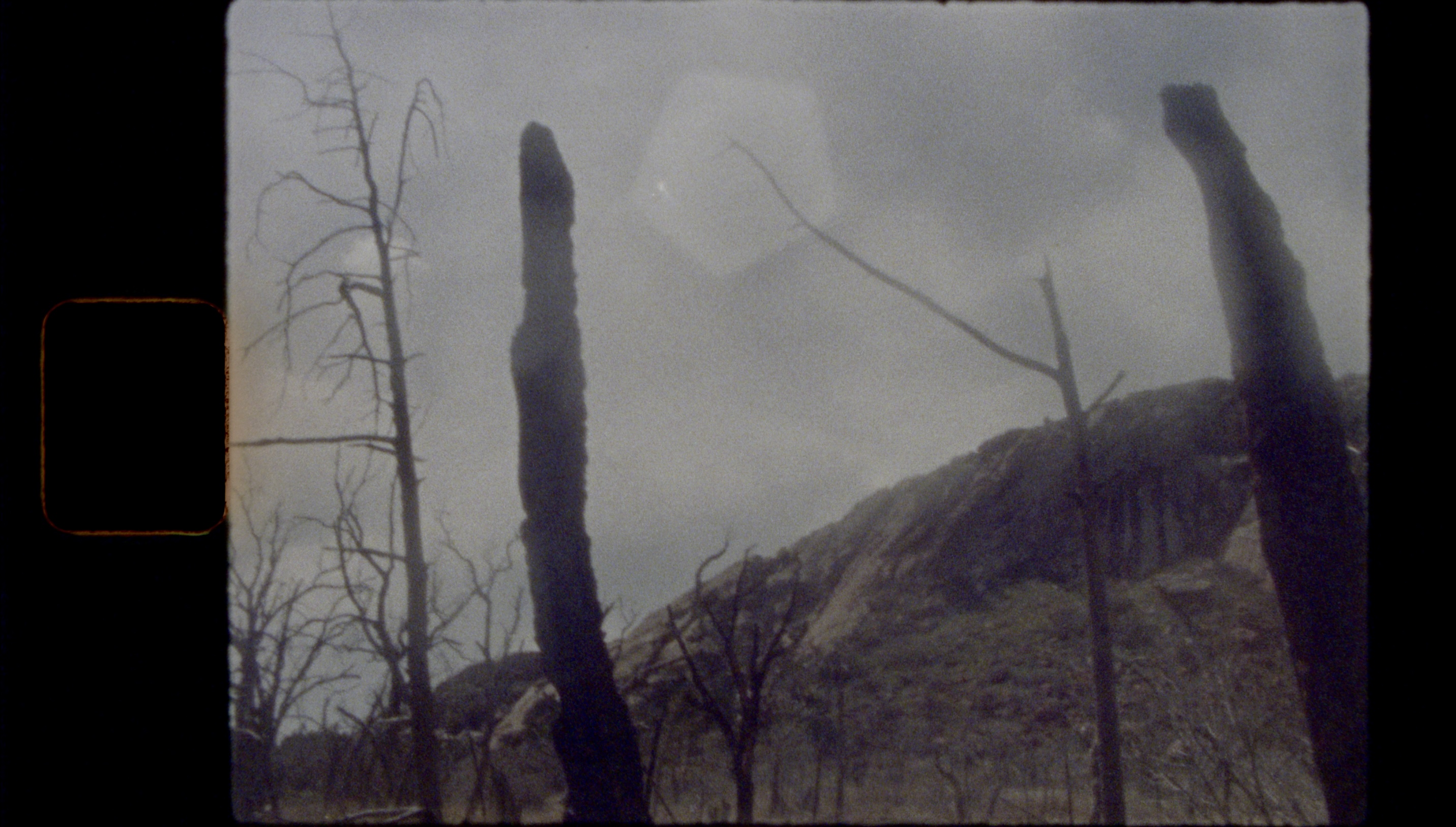
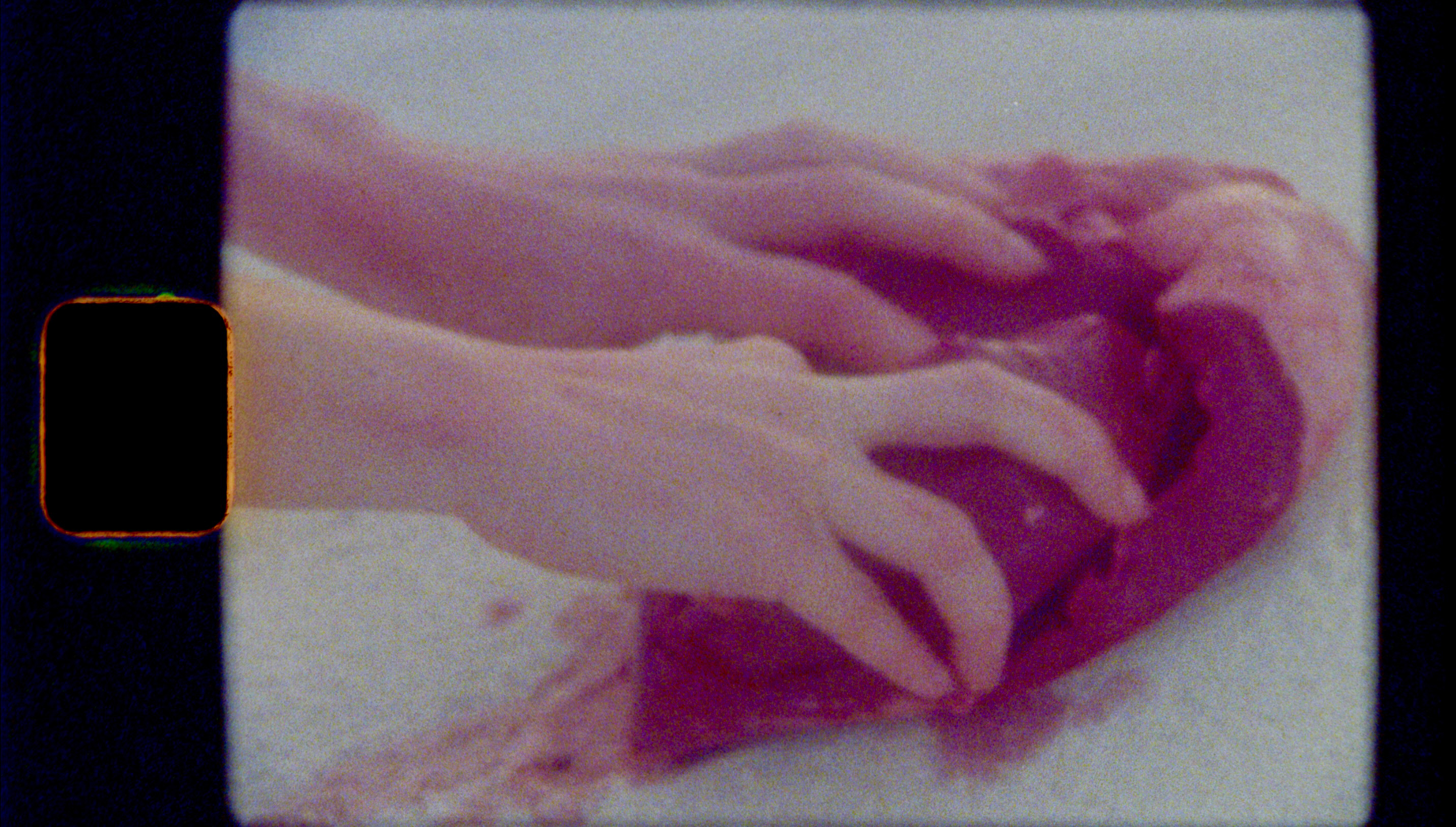
The Crying Mountain is a sound and video installation calling for the audience’s participation by accomplishing a collective ritual of memory and mourning. The installation is made of six reels of Super 8 film and the recordings of matching poems. It depicts the mythical evocation of a fictional woman saint, gestures addressing the liminal space between life and death, subjugated landscapes, but also practices of mending the earth, offering a poetic visual metaphor for loss.
The ritualistic gesture accompanying the installation invites the audience to write a note to a deceased loved one on a seed-embedded piece of paper and bury it in a pile of soil in the gallery space. I bind myself with the audience through a social contract as the installation operates as a constant exchange. Pinned on the wall, is a handwritten letter to participants where I promise to replant the notes they have entrusted me with in nature so they can bloom.
This installation also addresses the gallery space it transforms into a provisional space of communion for strangers, offering a moment of mental rest, for one’s pain to be acknowledged and shared, and a suspended moment of introspection when we can take the time to think about and speak to our dead.